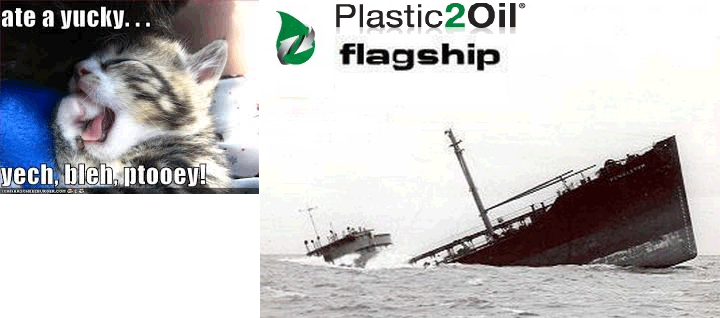Saul - Do you think the current market cap more ac
Post# of 43068

I do. I also think that the wild-eyed prices early on are typical of OTC companies that are hyped by "the faithful". Of course "the faithful" know how to make money from the early movements of new OTC companies with promising technologies and a good story. They have already moved on as now the company has to actually prove they can do what they said at the beginning they can do.
I think the rules for new companies should change to prevent this type of wild market speculation due to the amount of hype that is permitted. But I guess caveat emptor is enough as far as the rule makers are concerned. Play in this arena at your own risk. And know how to play the game. That doesn't mean that management should not be held accountable for misleading statements that they knew were misleading. That can be a fine line to draw.
The company has already shown that it cannot do everything they said in the early days. They cannot get as much free plastic as they want. The plastic they need is not easily procured. They must combine the pre-processed plastic (that wasn't in the early plans) with HTF to provide the right environment to keep the plastic and waste moving through the system. That cost was not in the early plans that called for the system to easily "scale up". The system does, in fact, scale up, but the amount of waste also scales up and the first designs did not properly account for that waste.
On the positive side, they have a fairly robust processor after all the design changes and this processor, with its back-end refinery and waste removal system, has the potential to realize some of the early claims, even if not at the $10 per barrel cost claimed for so long. But a $50 per barrel cost, even if the resulting fuel can only be sold for an average of $80 per barrel, still leaves the company with a money maker.
Sure, they might have to sell processors instead of running the whole show themselves, but if they are smart they will require a royalty stream along with the sale. The entities purchasing the processors will want to derive some financial benefit themselves from the collection of plastic and the running of the processors. That is fine. Everybody wins. JBI should be able to roll out processor faster with others responsible for their operation.
I haven't touched on the damage that the company has done to itself through claims that were easy to contest in court. That blame falls squarely on JB. There are entities that were perfectly willing to exploit any mistakes, but management should have known this and run as clean an operation as possible. I agree with you when it comes to this part of JB's responsibility for the current state of the business. I think the technical part is different. I think that part has been handled fairly well with the help of many qualified people. But even qualified people cannot always get it right in the end. The problem might simply be impossible to solve. This is a real risk you take when getting in early with a company that has not proven its technology. Even if the technology fails to deliver, that does not make the company a scam. It would not have attracted so much attention and validation from the entities it has if was simply a scam.
I don't know if anybody has entered realistic numbers into "The Spreadsheet", but I would think that even realistic numbers would display good results. Probably not the hundreds of dollars per share results from the early days, but a price well above the highs that have been seen should be possible down the road. It might take a decade, though.
Which leaves us with the company proving that they have addressed all the technical issues with the processor and can run it at a rate that is profitable or at least break-even for anybody purchasing one. Your "slow" progress does not seem all that slow to me - shit happens and must be dealt with and I'm sure they are still dealing with it even now. Maybe it is not possible to plug realistic numbers into the spreadsheet because we have not been given enough information. What ratio of plastic to HTF can actually be fed through the system on a continual bases and what are the real costs for the feedstocks?
The company is just finding out those answers itself.
Maybe I'm still kidding myself. Maybe the price really is this low because insiders know that the odds are not high that they can make the system work profitably. That will be a shame both for investors and for the unrealized promise that the company represented. All we will be left with is "we tried."
I think the price would be much lower if there was no hope at all.
 (0)
(0) (0)
(0)Plastic2Oil, Inc. (PTOI) Stock Research Links
